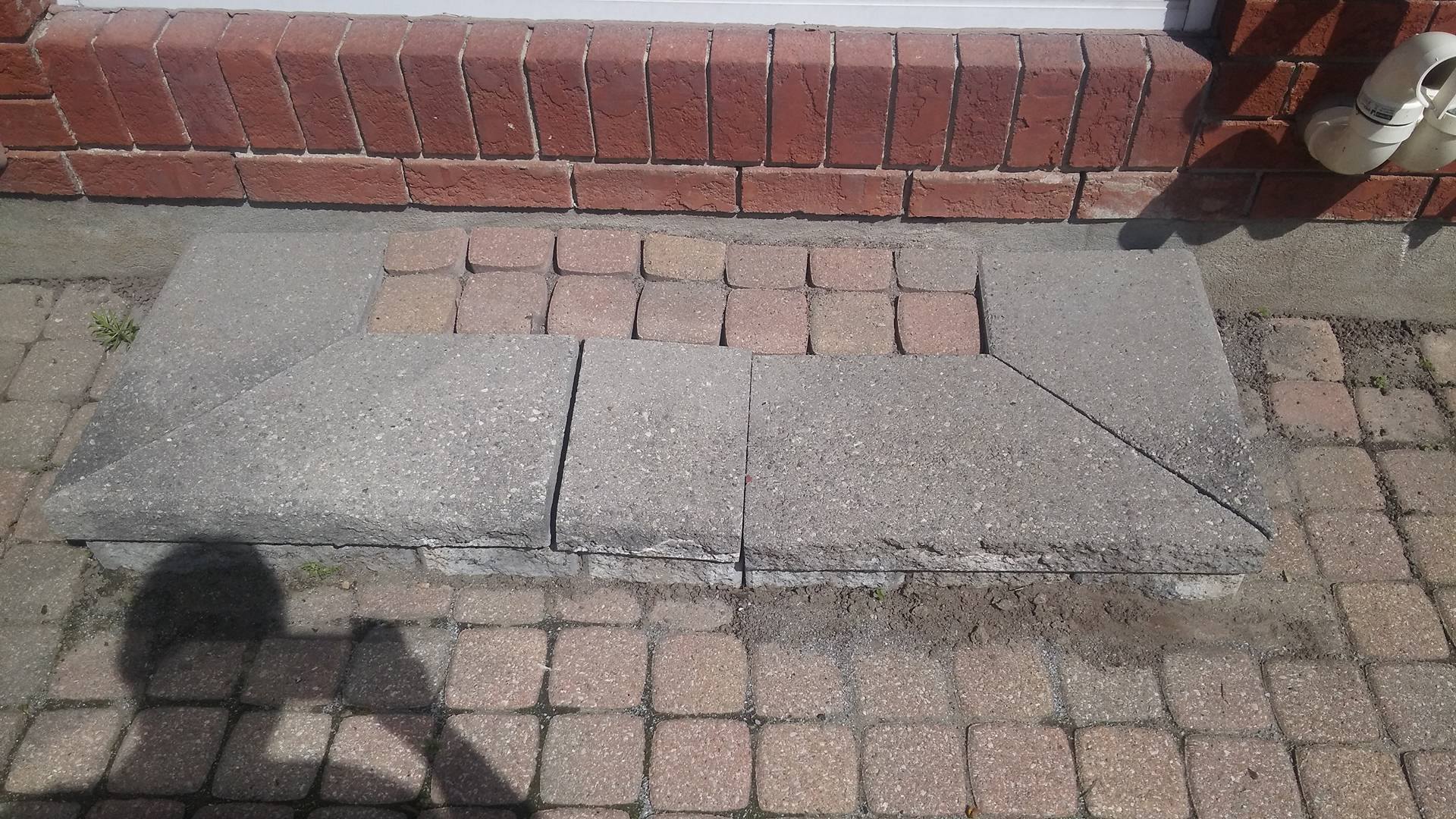What causes interlock sinking?
An obvious answer is poor workmanship.
That is a very simple answer.
And it is a true answer.
And it is definitely the most common answer.
But it is not a complete answer. Because even if you have perfect workmanship, your interlock may fail.
Once upon a time, a landscaping crew built a massive project. They brought a civil engineer who specializes in Interlock Construction to design it.
They made sure that they used certified materials.
They made sure they compacted the base and subgrade like good interlock technicians always do.
They did a phenomenal job.
And yet, it still sank!
How is this possible?
I’ll tell ya.
Their customers wanted it fixed.
That is perfectly understandable.
The landscapers didn’t want to fix it on their own dime.
That is also perfectly understandable.
So they got to the base of the matter. (That, dear reader, was a pun.)
They went to the base, the crushed stone underneath the interlock. Incidentally, that is where most of the problems with interlock sinkage come from. They tested the compaction. Incidentally, that is where most of the problems in the interlock base come from (where most of the interlock sinkage comes from).
The density of the crushed stone was perfect.
So they tested the crushed stone itself. This was the crushed stone they had made sure was certified.
It failed.
It was not good.
The crushed stone company had sold them not good material. They had told them it was good material.
Who ended up paying for the fix the massive interlock project needed?
Guess!
If you guessed that it was the crushed stone company, than you would have guessed right!
That is a case of bad stone.
But I probably should not have told you that story. Because stories like that are rare. Instead I should have just told you right at the beginning the reason most interlock projects fail.
They fail because the interlock technicians do not compact the crushed stone base properly, or do not install a deep enough base. You want at least six inches of crushed stone underneath your pavers and bedding layer (or wall).
There is another common reason interlock construction sinks and it is less well known.
It will fail if the subgrade, the earth underneath the base, is poorly prepared.
It needs to be properly graded, compacted, and sometimes amended with limestone to make sure it is strong to support the base itself.
Soooo….make sure you have a 6+ inch base, well compacted, and a solid subgrade underneath the base.
And then your interlock shouldn’t sink.
Other problems include but are not limited to: Chipmunks tunneling, ants being ants, water erosion, and applying loads that it wasn’t designed to bear.
